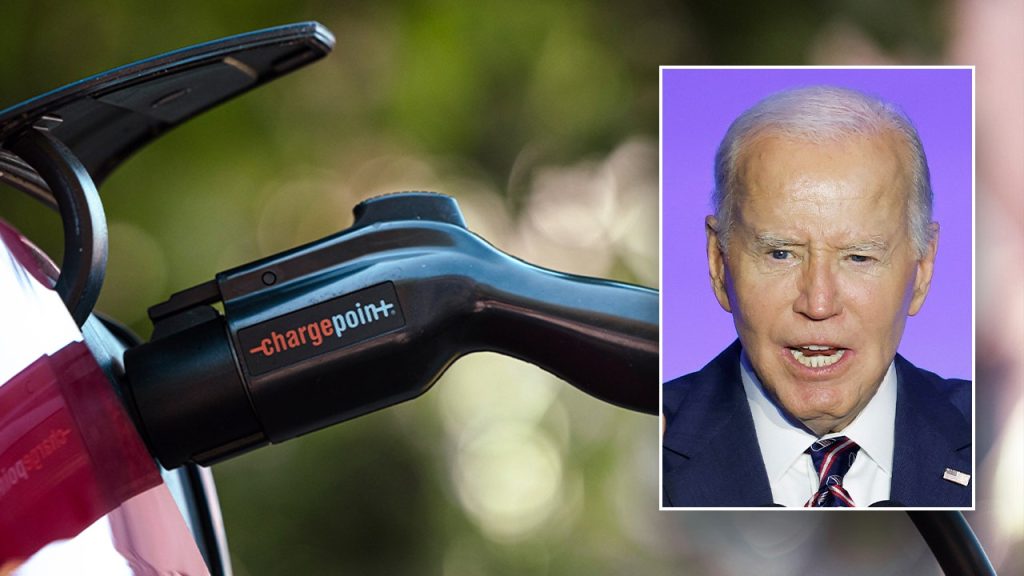The Biden administration’s proposed emissions standards on electric vehicles were opposed by a bipartisan group of lawmakers, leading to the passing of a Congressional Review Act resolution to block the regulation. The EPA had announced in March that new emissions standards would require a significant portion of new cars sold to be electric vehicles by 2032. The resolution, introduced by Rep. John James, R-Mich., aimed to prevent what he called a “catastrophic” impact on the auto industry and middle-class workers. This move was supported by eight Democrats, highlighting bipartisan concerns about the potential effects of the new standards.
Opponents of the EPA’s rule argued that it was crucial for reducing emissions, while those in favor of the resolution believed that it would protect manufacturing jobs and consumer choice. Vice President Harris has been vocal about her support for mandating electric vehicles, emphasizing her values on environmental issues. The passing of the bill came after strong lobbying efforts by energy groups, who criticized the EPA’s overreach in attempting to enforce a transition to electric vehicles. Senate Republicans, led by Sen. Pete Ricketts, are also supporting a similar resolution in the Senate to counter the administration’s emissions standards.
The impact of the new emissions standards on the auto industry, particularly in Michigan, was a key concern for lawmakers who supported the blocking of the regulation. Rep. John James highlighted the risk of job losses and economic upheaval if the standards were implemented as planned. The Biden-Harris administration’s push for electric vehicles has faced criticism for potentially limiting consumer choice and affordability, as well as putting American jobs at risk. The bipartisan nature of the resolution further underscored the concerns about the potential consequences of the new emissions standards.
The EPA’s final rule under the Clean Air Act aimed to significantly increase the percentage of electric vehicles in the market by 2032, in line with the administration’s environmental goals. However, the opposition to this rule reflects broader debates about the balance between environmental protection and economic considerations. Critics argued that the proposed standards would have negative implications for the auto industry and potentially lead to job losses. The resolution passed by the House is part of a larger effort to challenge the Biden administration’s environmental policies and push back against what some see as regulatory overreach.
The passing of the Congressional Review Act resolution is a significant setback for the Biden administration’s environmental agenda, particularly regarding electric vehicles and emissions standards. The bipartisan support for the resolution highlights the broad concerns about the potential impact of the new regulations on various sectors of the economy. The debate over emissions standards, consumer choice, and economic consequences will likely continue to be a contentious issue as the administration seeks to balance environmental goals with economic realities. The Senate’s consideration of a similar resolution indicates that the opposition to the EPA’s rule is not confined to the House and reflects wider concerns within Congress about the potential consequences of the new emissions standards.


